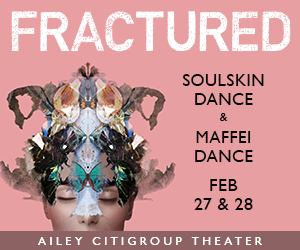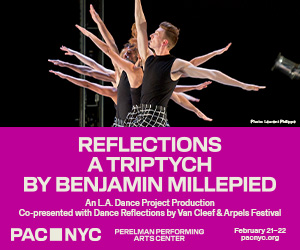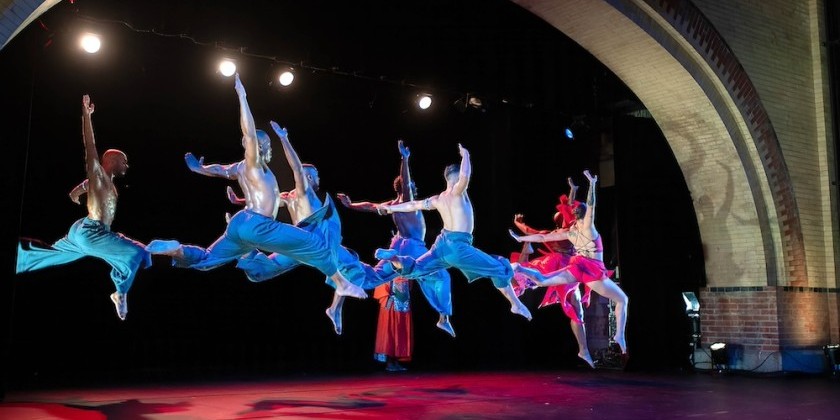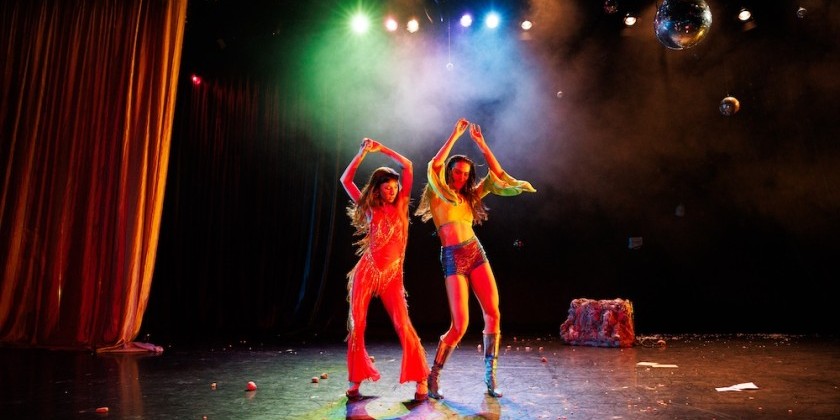IMPRESSIONS: Eiko Otake and DonChristian Jones in "SOAK" at Harlem Stage

Choreographers: DonChristian Jones and Eiko Otake
Videographers: DonChristian Jones and Eiko Otake
Lighting Designer: Saúl Ulerio in collaboration with the artists
Dramaturg: Allison Hsu
Production Manager: Zenzele Daniels
Dates: Friday - Saturday, June 13 - 14, 2025
On the humid street in front of Harlem Stage, a group of people gather together, their chatter quieting to a soft hum as a willowy woman makes her way towards them. The herd approaches slowly, bridging the distance and edging closer to the figure as she treks up the sloped sidewalk in their direction, her ankle-length white dress billowing in the wind. Waif-like and wavering, she shuffles forward, carrying branches in her hands, her torso dipping sideways to counterbalance their weight. In the vacant lot her Geta sandals clack against the pavement as she approaches a tin bucket brimming with water perched atop a rock. She tips the bucket over and the water sloshes before her, hitting the rock with a loud clap.
This force of elemental nature is none other than Eiko Otake, the 73-year-old interdisciplinary artist and dancer. The evening length work, SOAK, created with collaborator DonChristian Jones, a 35-year-old multimedia artist, musician, and director, functions as a meditation on memory and explores water as a site of “shared origin.”
SOAK is part of Otake’s ongoing work that began in 2017, titled The Duet Project: Distance is Malleable. The project functions as “a mutable and evolving series of experiments in collaboration. Negotiating differences of race, time, culture, ethnicity, religion and gender the artists seek to maximize the potentials of their encounters.”
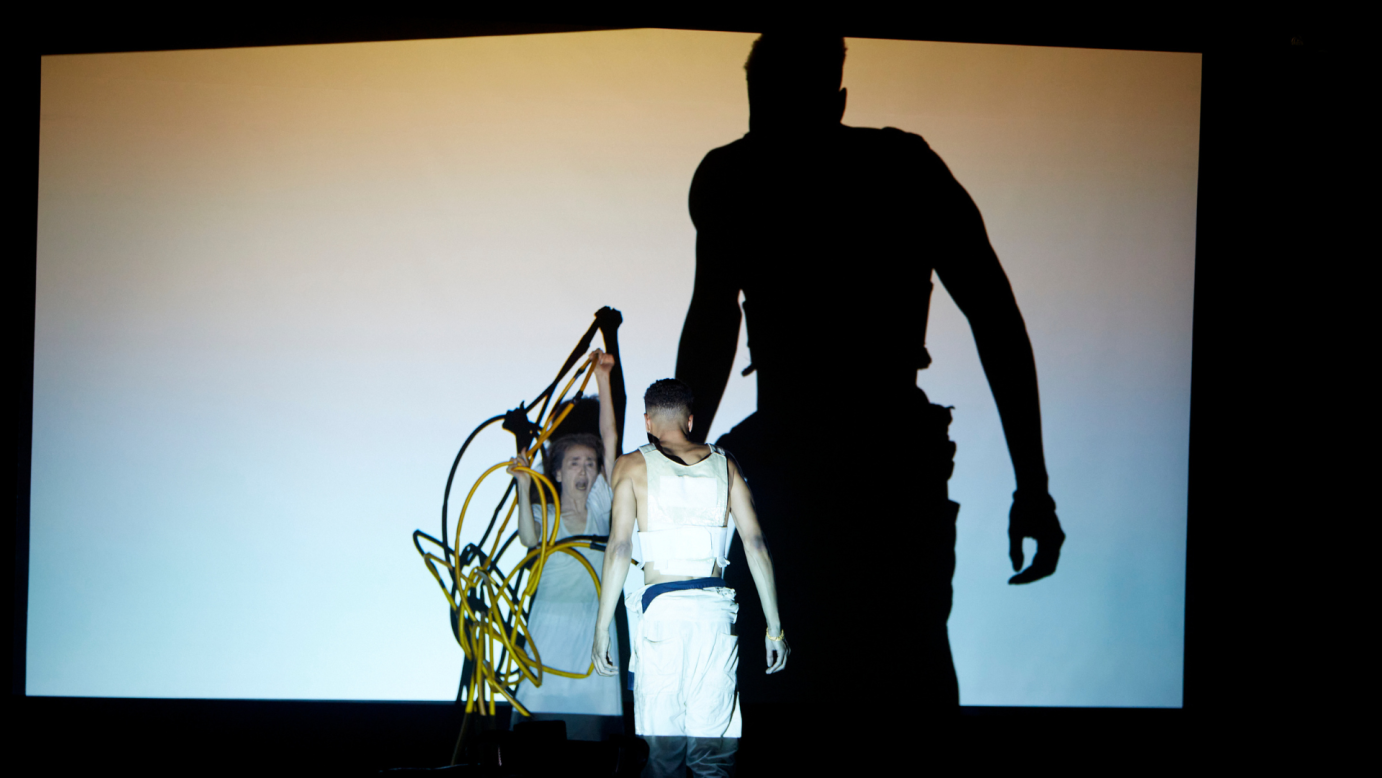
Otake trails up the slanted parking lot, meandering through the crowd toward a staircase. Touching audience members' hands with water and handing her branches to them, she peers through their faces and into their souls. Her eyes, focused yet adrift, point to a complex inner world made increasingly accessible through her expressive visage. This dreamlike sequence leads her to lean against the wall supporting the stairs. Jones appears from above and pours a tin bucket filled with water down the facade, momentarily transforming the beige stone into a waterfall. Otake crouches beneath the spillage, looking upward at its source in quiet awe. She leads us indoors, gripping the banisters and scurrying onward, silently urging us to follow. Her presence is so intense it creates a certain pressure, teetering between meditative and anxious, forcing one to exist within her timeless, hypnotic movement.
The interior of Harlem Stage functions like a darkened cavern, lights dimmed and air slick with heat. Atop the black marley lies a shallow pool of water two or three inches deep, edged in black fabric. The audience sits in a U shape, our chairs hugging the perimeter of the room. In the upstage corner, a water pail sits under a warm spotlight; the object radiates with a familiar feeling of comfort in an otherwise ominous environment. The building's arched walls frame a rectangular projection of an image that appears to be the Harlem Stage prior to restoration. The construction scaffolding and harsh lights signifying an alternate occupation of the space, one reliant on productivity and progress.
Otake enters the stage without a sound; she sits curled into herself, compact in the corner, next to the water pail. The sounds of city trucks blare through the open stage door as she wriggles on the floor and slowly rises to her feet, leaning against the wall for support. The projections switch from images of the restoration to a collage of videos showing Jones in abandoned buildings filled with overgrown shrubbery and dripping ceilings. His solitude and slow-moving limbs enmesh his body with his surroundings. Otake and Jones, though separate in physical space, are alone together, moving in tandem through isolated timelines.
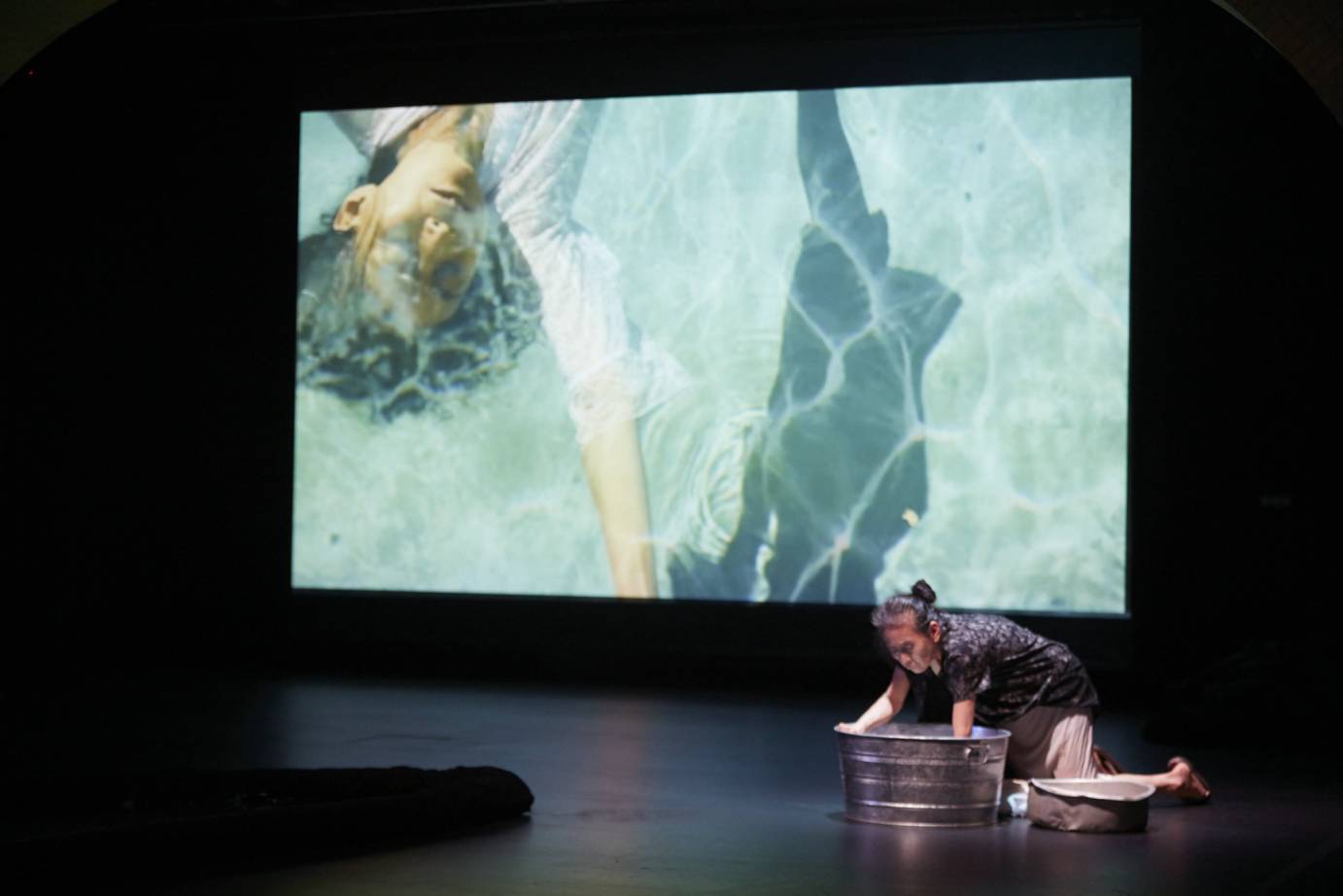
A video appears: Jones’s feet flicker momentarily before the shaky handheld camcorder focuses in on Otake in a pool, submerged in her white dress, floating in a fetal position, at once barely born and deceased. Perhaps this is the “shared origin” the duo are after — a record of buoyant formlessness. Otake maneuvers simultaneously around the stage, toying with the water, cupping her hands to her face and dipping fabric into the pool, wringing it out and placing it along its edge. She clothes the space, draping a piece of fabric over an empty chair, claiming it as her home.
Jones enters through the light, shutting the stage door behind him. The sounds from the street are drowned out, engulfing us in a new world: womb-like, silent, and damp. He wears his dads old police bulletproof vest, embroidered in silk, and baggy white linen pants. Grabbing a hose and entangling himself within its knots — much like an umbilical cord—he confides to us about his father, who once loved water and grew to fear it during his battle against cancer. We witness a man taking form as we listen to his journey from child to adult son to caretaker. Jones’ metamorphosis is further embodied by Otake as she crawls forward, collapsing into her heap of wet cloth, rising only to pull at the pieces again, the black mass spreading further and further from its center. As soon as she has escaped the mass of damp darkness, Jones places the hose around Otake, gingerly ensnaring her in his web.
Their physical linkage quickly dissipates as Otake flees to the back of the stage, moving freely in front of a projected white background. Her curled, misshapen silhouette resembles a scribbled spirograph as her torso contracts inwards. Jones stands near the pool, recalling how his father would panic at the sound of a shower but soon would remember himself and ask his son to stay and soak. “Water is always trying to get back to where it was,” Jones says, his voice resonant and steely.
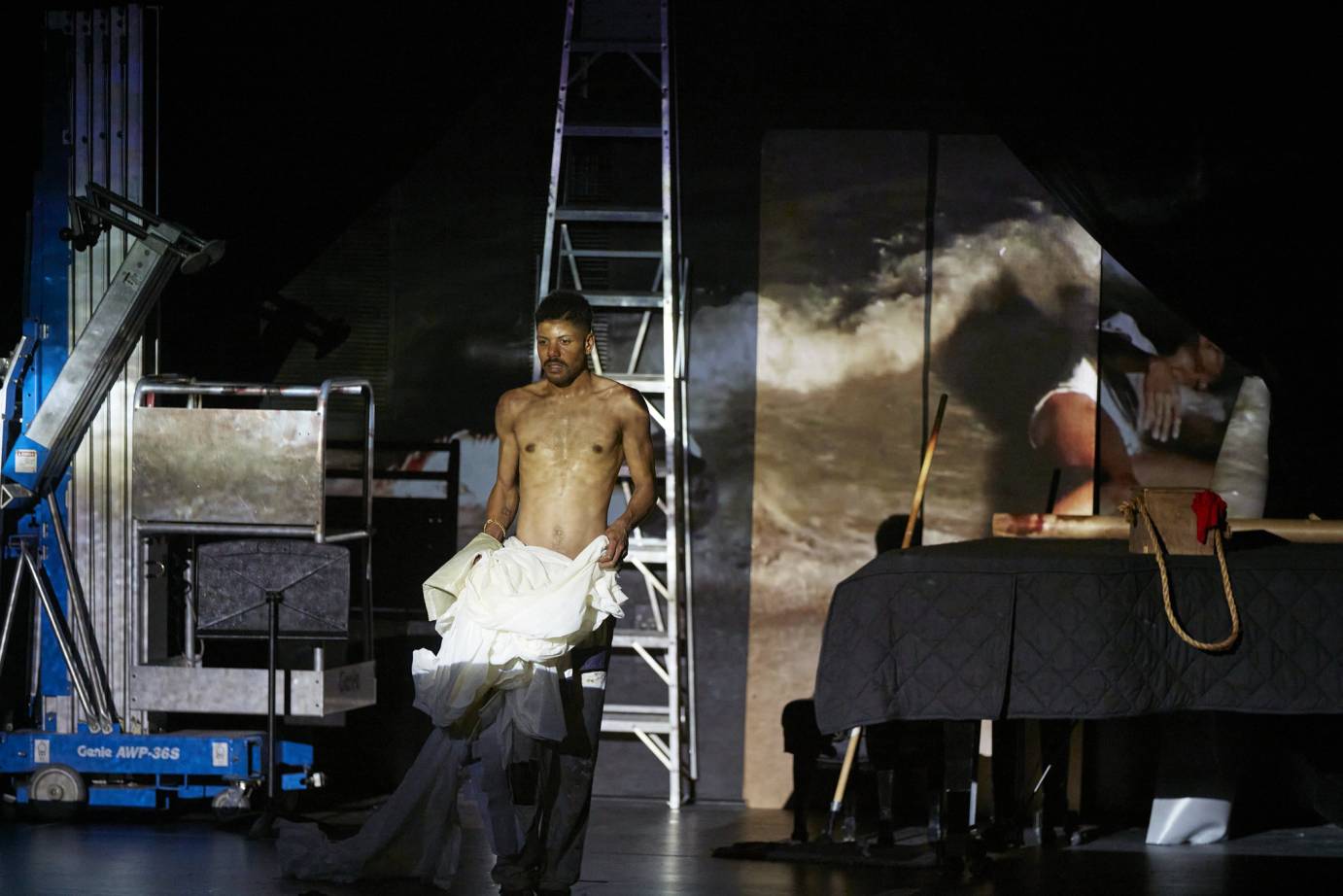
Jones peels off his vest, dangling it like a molted snakeskin as the sound of pounding water plays alongside a projection of his father’s back beneath a steady shower stream. He cloaks himself in a white sheet and sits in the pool, giving himself over to the water and its will. His form mutates from one of pumping blood and propulsion to wrinkles and intermediate stillness. Trapped inside the cocoon of sheer wetness, the moisture reveals a skeletal self; this iteration of Jones teeters between being and becoming. As the lights dim, Otake crawls forward, and, finding Jones motionless in the pool just as she had been, shoves him urgently. Her torso ricochets before relinquishing Jones to the water. Staggering off into the darkness, she disappears, leaving behind his still frame — a souvenir of a life once lived.




